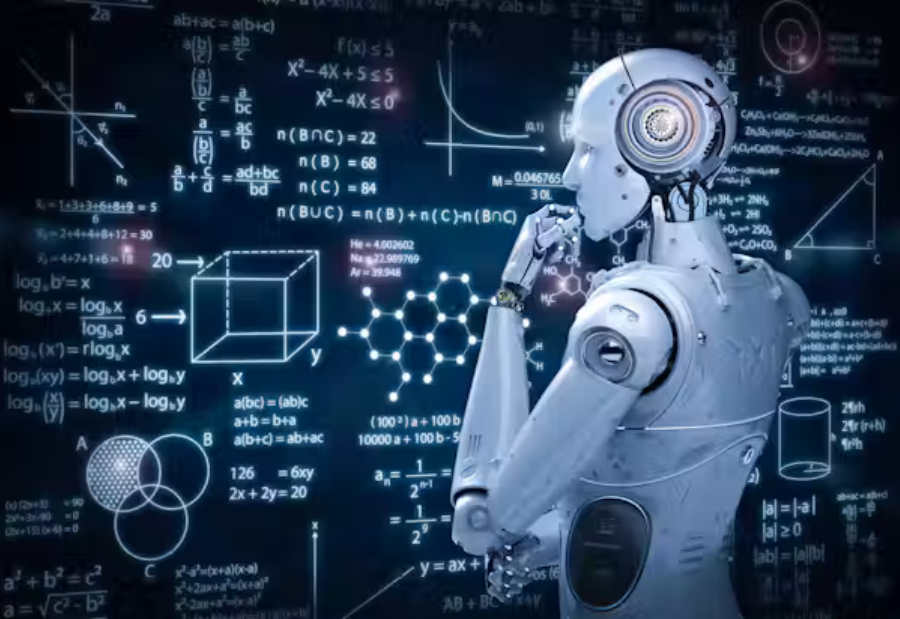Artificial Intelligence (AI) is no longer a futuristic concept—it’s woven into the very fabric of our daily lives. From personalized shopping recommendations to autonomous vehicles, AI is shaping industries, societies, and economies. But what lies ahead? How will AI evolve in the next decade?
As reported by The Mainstream, the future of artificial intelligence will not just enhance productivity but redefine what it means to innovate, think, and create. Here’s a forward-looking exploration of the trends, breakthroughs, and challenges likely to define AI’s journey over the next ten years.
1. From Narrow AI to More Generalized Intelligence
Currently, most AI systems are “narrow”—designed to excel in specific tasks like language translation, medical imaging, or financial forecasting. In the next decade, we can expect significant strides toward Artificial General Intelligence (AGI)—machines capable of learning and adapting across multiple domains without human intervention.
While full AGI may still be decades away, early forms will emerge, enabling AI to transfer knowledge between tasks and reason in more human-like ways.
Implication: This shift could accelerate innovation but will also spark deeper debates about ethics, control, and governance.
2. The Rise of Agentic AI
The next decade will see the mainstream adoption of agentic AI—autonomous AI systems that can perform multi-step tasks, make decisions, and take actions in the real world.
Imagine AI that not only drafts your travel itinerary but also books your flights, negotiates hotel rates, and rearranges plans in real-time when disruptions occur.
Implication: This will transform personal productivity, corporate operations, and service delivery, but it will also require stronger safeguards to ensure responsible decision-making.
3. AI-Powered Scientific Discovery
AI is already helping scientists accelerate breakthroughs—from protein folding to climate modeling. Over the next 10 years, AI will become a core partner in research, helping to develop new drugs, design advanced materials, and even create sustainable energy solutions at record speed.
Implication: The speed of discovery will grow exponentially, potentially shortening timelines for solving some of humanity’s biggest challenges.
4. Multi-Modal AI Becomes the Norm
Today’s leading AI models are increasingly multi-modal—they can process text, images, audio, and video together. In the coming decade, this capability will become ubiquitous and seamlessly integrated into everyday tools.
For instance, a future AI tutor could watch a student solve a math problem, listen to their explanation, analyze their facial expressions for confusion, and adapt the teaching style instantly.
Implication: This will revolutionize education, healthcare, entertainment, and customer experience.
5. Hyper-Personalization in Every Industry
AI will refine personalization to unprecedented levels. In marketing, it will predict consumer needs before they’re expressed. In healthcare, it will tailor treatment plans to a patient’s genetics, lifestyle, and environment.
Hyper-personalization will move from being a competitive advantage to a baseline expectation.
Implication: Businesses that fail to adopt AI-driven personalization risk losing relevance.
6. AI Governance and Global Regulation Will Mature
As AI’s capabilities grow, so will its risks—bias, misinformation, privacy violations, and job displacement among them. Over the next decade, expect comprehensive AI governance frameworks to emerge, shaped by collaboration between governments, industry leaders, and civil society.
International AI “treaties” may become as significant as climate accords, ensuring AI development aligns with human rights and societal values.
Implication: Strong governance will be essential to balance innovation with public trust.
7. AI and the Future of Work
Automation will redefine job roles, but rather than eliminating all jobs, AI will augment human capabilities. Routine, repetitive tasks will increasingly be delegated to machines, freeing humans to focus on creativity, strategy, and relationship-building.
The rise of “AI fluency” as a core professional skill will be as important as digital literacy was in the 2000s.
Implication: Continuous learning and adaptability will be critical for workforce resilience.
8. Quantum Computing + AI = A New Frontier
By the early 2030s, the convergence of quantum computing and AI could solve problems once thought impossible—optimizing global supply chains in real time, modeling entire ecosystems, or unlocking new cryptographic methods.
Implication: This combination could reshape industries from pharmaceuticals to finance, but it will also demand new security protocols.
Final Thought
The future of artificial intelligence is both thrilling and complex—a balance of innovation and responsibility.
The Mainstream believes that the next decade will define how humanity and machines coexist—not in competition, but in collaboration. AI’s journey will be guided not just by algorithms and computing power, but by our collective ability to align it with ethical, inclusive, and sustainable values.
The question isn’t whether AI will shape the future—it’s how wisely we’ll shape it together.
Also read: Viksit Workforce for a Viksit Bharat
Do Follow: The Mainstream formerly known as CIO News LinkedIn Account | The Mainstream formerly known as CIO News Facebook | The Mainstream formerly known as CIO News Youtube | The Mainstream formerly known as CIO News Twitter |The Mainstream formerly known as CIO News Whatsapp Channel | The Mainstream formerly known as CIO News Instagram
About us:
The Mainstream formerly known as CIO News is a premier platform dedicated to delivering latest news, updates, and insights from the tech industry. With its strong foundation of intellectual property and thought leadership, the platform is well-positioned to stay ahead of the curve and lead conversations about how technology shapes our world. From its early days as CIO News to its rebranding as The Mainstream on November 28, 2024, it has been expanding its global reach, targeting key markets in the Middle East & Africa, ASEAN, the USA, and the UK. The Mainstream is a vision to put technology at the center of every conversation, inspiring professionals and organizations to embrace the future of tech.




